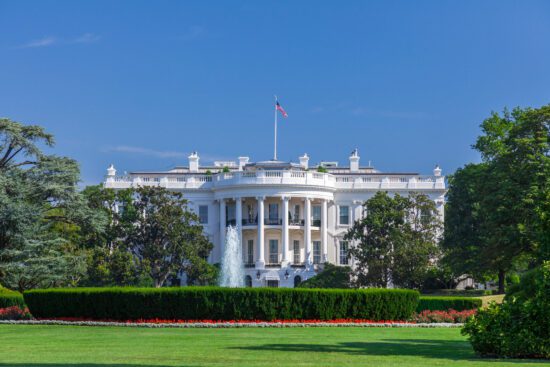Amidst rising levels of polarization and a public square often marked by distrust, incivility, and animosity, Christians are called to engage with the grace and love of Christ. We have the opportunity for public witness to the gospel by loving our neighbors through democratic participation and advocating for human flourishing in the public square. As we think about engaging in the public square with wisdom and grace, here are some helpful suggestions for orienting our lives and communities.
1. Get news from print and digital media with checks and balances.
We can love our neighbors well by staying informed about current events, particularly those affecting our local communities. However, TV and social media are often bad at providing accurate, unbiased information and are better suited to entertainment and superficial connection. Try to limit TV news, talk shows, and YouTube shows. Instead, subscribe to a newspaper, news magazine, or online news source. These do not entirely avoid bias, but they do engage our minds more actively, helping us assess and filter out bias, and have editorial checks and balances in place. In addition, text can be less emotional and less sensational than the image-based media of TV and most social media.
2. Put down your smartphone.
Smartphones are powerful and useful devices, but they can also be addictive, overpowering, and distracting to human interaction. Avoid taking out your phone during conversation, at mealtimes, and while hosting others. Be present with other people and give them the gift of your full attention and focus. Consider a technology fast at least once a week. Train your children, as well, to have discipline and self-control with the technology they will encounter.
3. Teach your children the importance of gracious, in-person social interaction, even if it seems old-fashioned.
We must pass on to the next generation lessons in engaging with the public square. Truths such as “be quick to listen, slow to speak, and slow to become angry” (James 1:19), “a gentle answer turns away wrath” (Prov. 15:1), and “be kind” (Eph. 4:32) are preparing children not just for kindergarten, but for interacting on digital platforms and for Christian political engagement more broadly. Believe the best about others, rather than rushing to ascribe malice or foolishness to someone just because they disagree with you or belong to a particular tribe. Do not debate politics over Facebook or X. Rather, have meaningful conversations face to face with your friends, colleagues, and neighbors, and model healthy dialogue and debate for your children.
4. Get involved locally, and drop roots for however long you can.
Go to your local parent-teacher association, city council, or block club (popular in urban settings). Join a veteran’s group, book club, or neighborhood chess night. Join or coach a sports team. Do something that physically gets you out of your house and into face-to-face contact with people who live in your immediate vicinity. This generation moves and changes jobs and careers more often than our parents and grandparents, which can lead to our living increasingly less rooted lives, fewer friendships, and less investment in our communities. To counter that, invite friends, neighbors, and coworkers over to dinner at least once a month, and involve neighbors in your family and holiday traditions.
5. Seek out difference.
If your friends are of the same race or ethnicity, the same political party, or the same income and education level as you are, you are depriving yourself of the opportunity to grow. Actively build relationships with those who are different from you, whether through your church, school, or community activities. Adopt a posture of humility and curiosity, asking questions to learn more about others’ experiences, perspectives, and cultures.
6. Join a church, pray for the nation, and remember that they are different.
Our churches are our most important communities outside of our families, because they represent the body of Christ and remind us of our ultimate citizenship in the Kingdom of God. Consider how much time you spend evaluating the state of the nation versus how much time you spend investing in relationships within your local church. Remember that, ultimately, “the nations are like a drop in the bucket, and are accounted as the dust on the scales” (Isa. 40:15).









